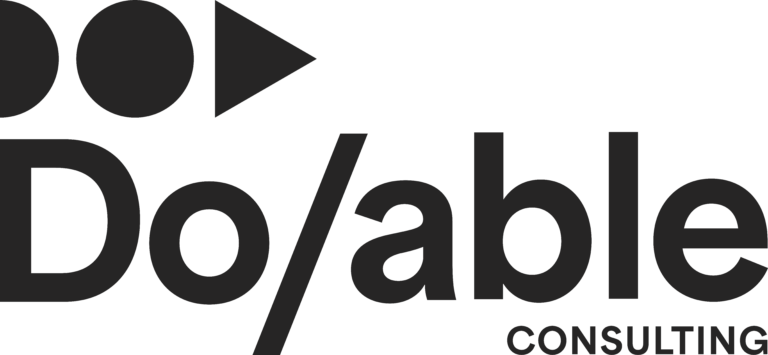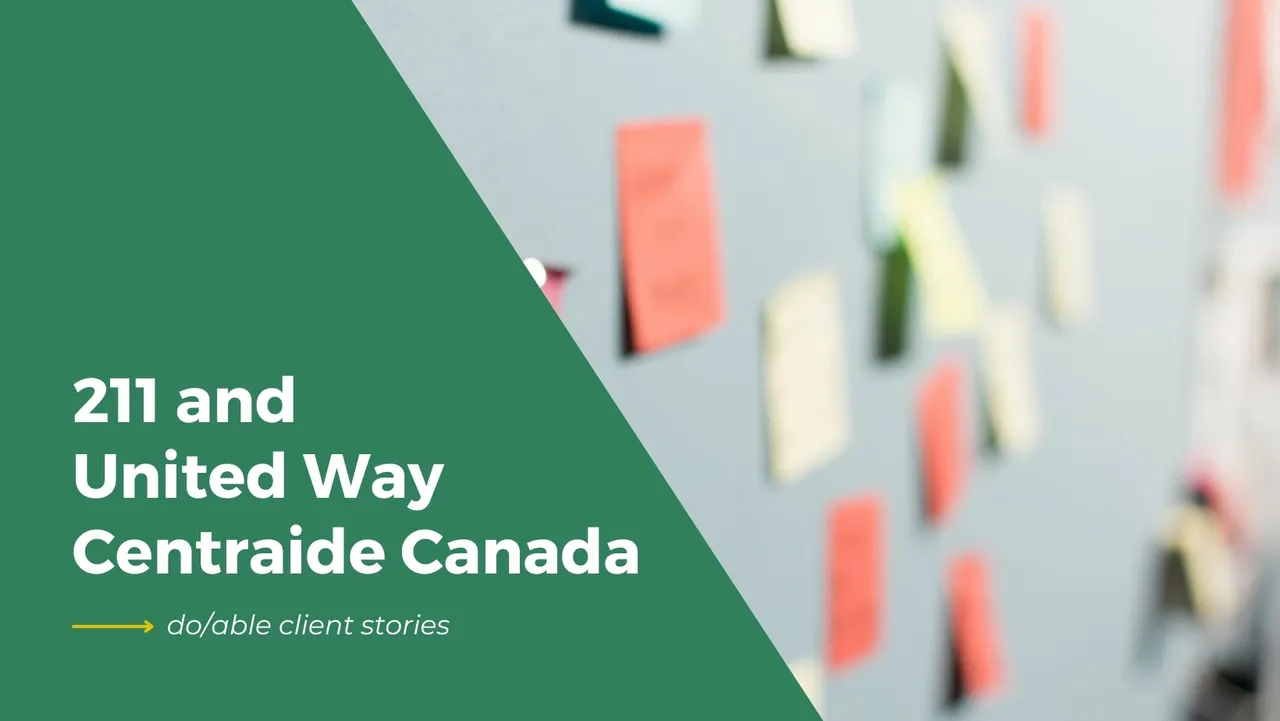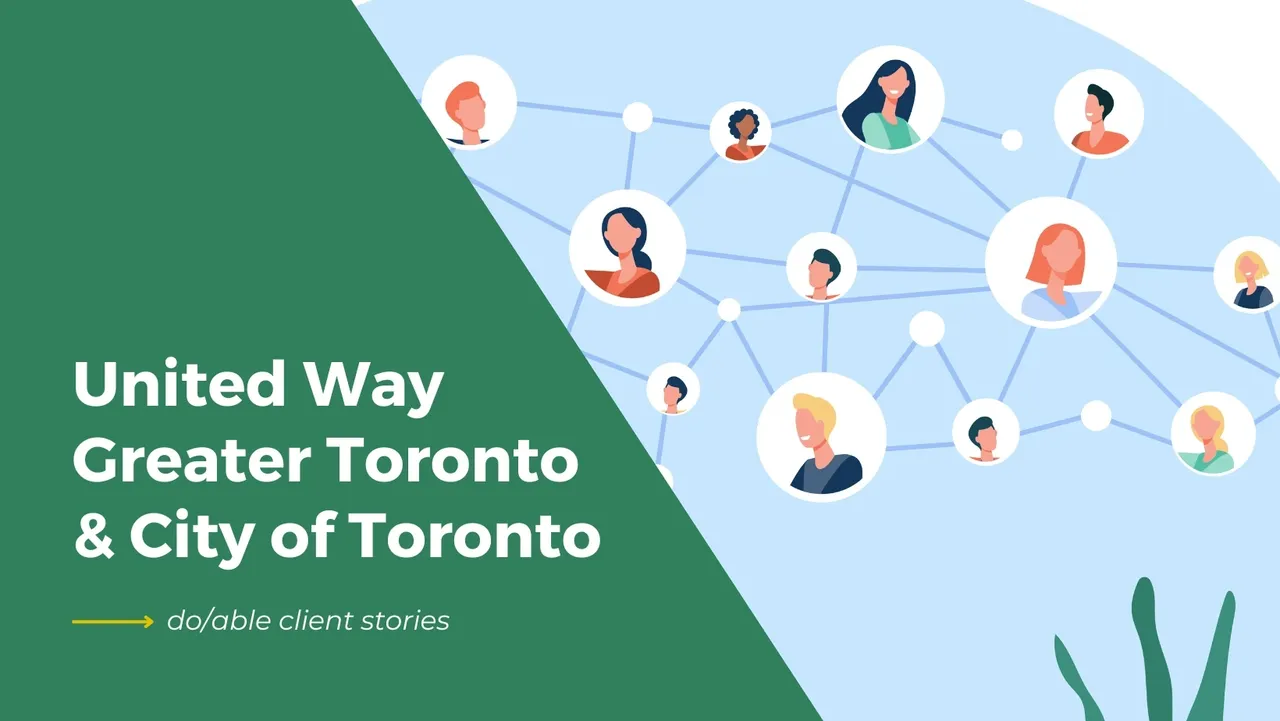Do/able joins 211 partners and United Way Centraide Canada to learn whether a service innovation can scale nationwide and improve client outcomes.
By Kris Cummings & Suhanya Ketheeswaran
211 is a web- and phone-based navigation service that connects more than 2 million Canadians each year to the social, governmental, and health services they need. The service works by providing users with information and referrals 24 hours a day, 7 days a week, in over 150 languages.
The value of 211 in helping people navigate complex service systems came into clear view again in 2020, following the onset of the Covid-19 pandemic, when demand for the service increased more than 30%. Since then, 211 has been made available in every province and territory across the country.
Piloting a closed-loop referral model – an opportunity for 211 to innovate and expand its impact.
The opportunity: Between July 2022 and March 2024, 211 and United Way Centraide Canada received funding from the Government of Canada (specifically, the Reaching Home Program – Community Capacity and Innovation Stream) to assess whether a “closed-loop” referral model could be successfully implemented to help prevent and reduce homelessness.
Expanding on 211’s traditional role of curating and disseminating information and referrals, and helping community members navigate the service landscape in their community, the closed-loop model would enable 211 to also provide ongoing service coordination support, thereby maintaining contact with the service user and the organizations serving them, until a client indicates their needs have been met. The 211 team viewed this not as a challenge, but as an exciting opportunity to test whether an innovation in their service space could help ensure that clients with complex and multiple needs have a better experience and better outcomes and don’t fall through the cracks.
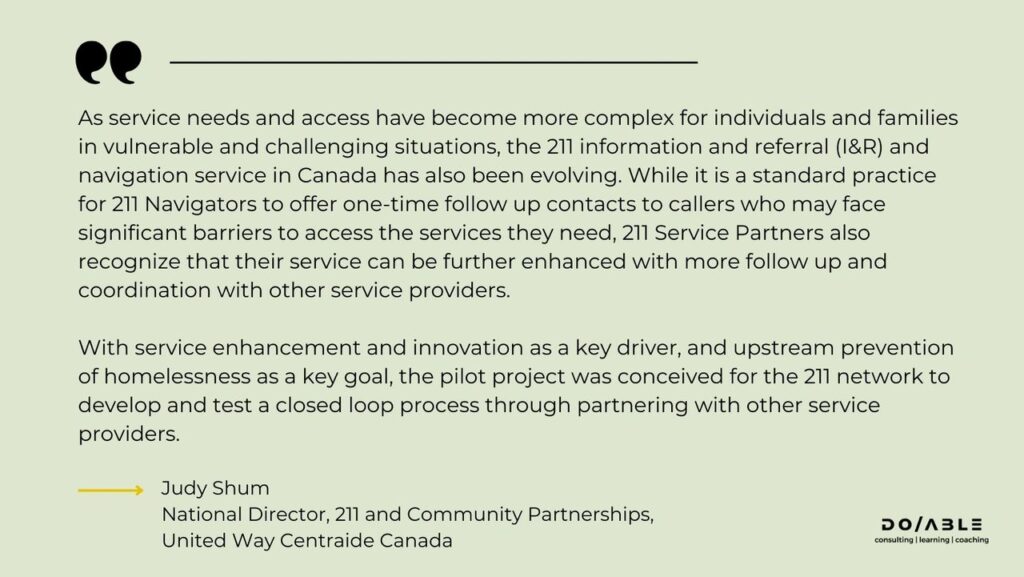
The solution: Given the expansive nature of this pilot project, which involved multiple organizations across 6 regions and 3 different time zones, Do/able was brought onboard as an external partner to assist with the coordination and facilitation of a multi-stakeholder service review.
A service review is a process teams can undertake to evaluate and evolve longstanding programs within their organizations or networks. Using a systematic approach, service reviews help to gather evidence for what’s working, what can be improved, and where an adaptation might be effective for enhancing a program’s relevance and responsiveness to community need. Not only can this yield better outcomes and user experiences, but it can also build credibility for the best practices already in play and the innovations being pursued alongside them.
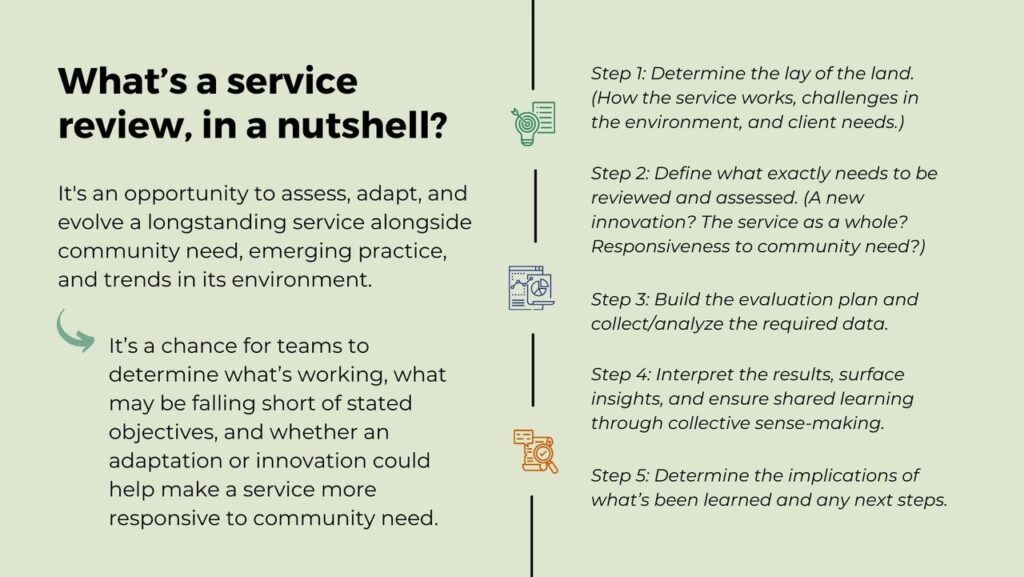
The process: As a first step, Do/able met with the project team and their external funder to understand the environment 211 was innovating within, how the 211 service was organized and delivered, and why a closed-loop model might hold the potential for something positive and additive in the evolution of the service.
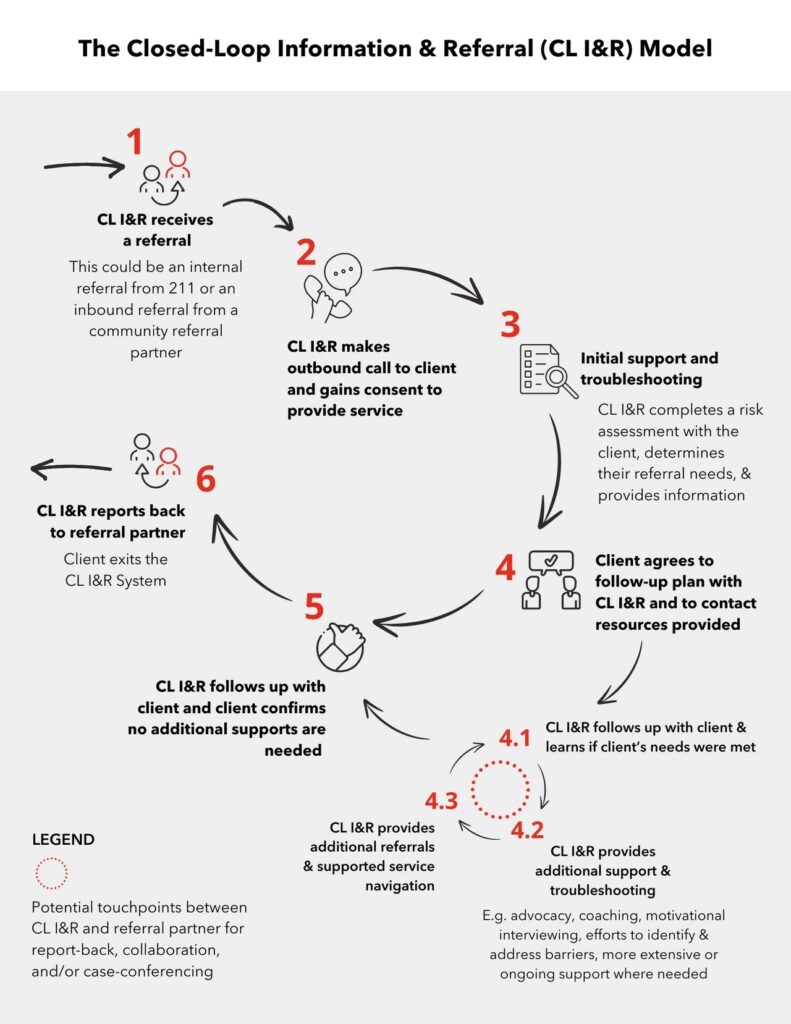
Do/able then worked with core stakeholders to define exactly what needed to be evaluated as part of the service review. While the original scope focused on assessing the effectiveness of closed-loop referrals for preventing and reducing homelessness, the team’s exploration with Do/able yielded consensus that there were other pieces worth evaluating. The experience of implementing the pilot in 6 distinct regions had produced important learnings for how the closed-loop model could be sustained and scaled in the future, making it another crucial area for review and assessment.
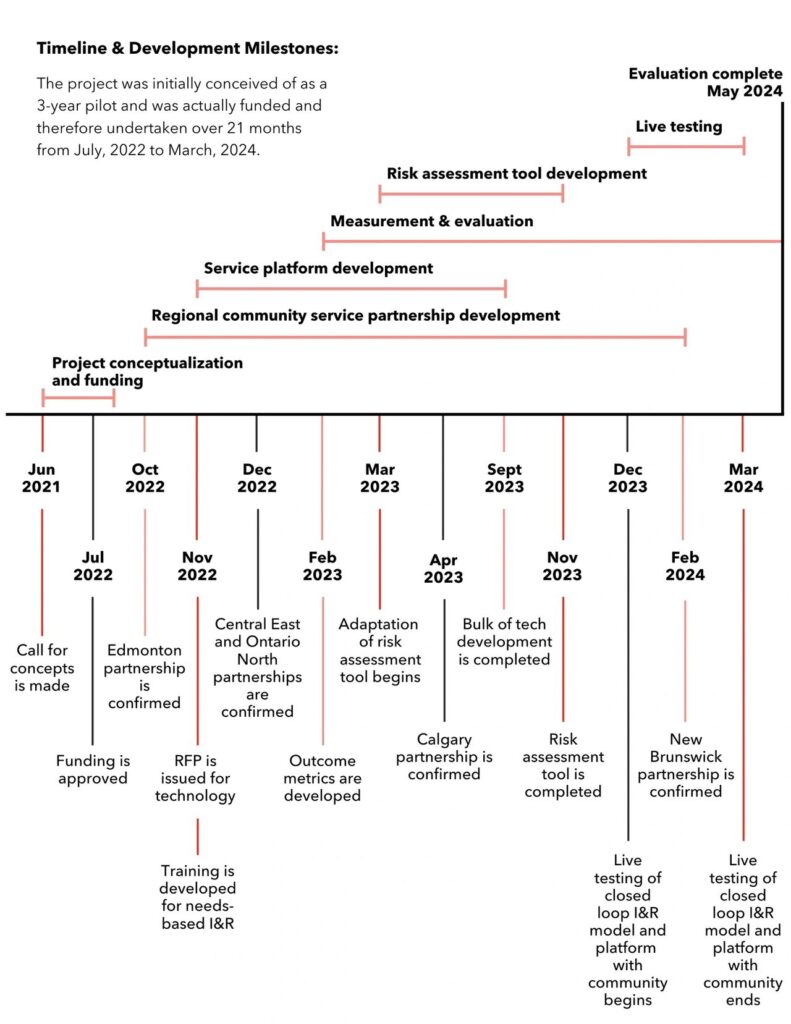
Next, the Do/able team worked with the partners to develop a plan for collecting all of the data necessary to start building a picture of how and where progress was being made, if any, on the factors being tested. Do/able supported the actual data collection and analysis, with emerging insights regularly brought forward to the project team for sensemaking and a shared understanding of what was being learned together. The final step in the service review involved facilitating core stakeholders through a process of determining what the evaluation results meant for the service going forward, and what questions remained unanswered.
The outcome: Evidence suggests 211 is well positioned to deliver service coordination support that delivers benefits for clients and services systems alike
By undertaking a comprehensive service review that engaged a cross-section of stakeholders, 211 discovered that the closed-loop referral pilot had yielded important successes and learnings:
- The team could now identify what had worked well; what showed promise, but might need more testing; and what couldn’t be fully tested because the data wasn’t yet available.
- They observed that premier evaluation requires planning for data collection from the outset, with as much of a clear idea as possible of the factors being assessed and the methods for doing so.
- The project underscored the importance of evaluating not just outcomes, but also the process undertaken to implement a change in service.
- Engaging a 3rd party facilitator enabled the group to pass on responsibility for data analysis, facilitation, and overall coordination of the service review, so that the core team could focus on determining what it might take to sustain and scale a promising service innovation.
- Lastly, and excitingly, the conclusions and recommendations outlined in the service review attracted further attention and follow-up from the funder, signalling interest and confidence in the team’s implementation of the pilot.
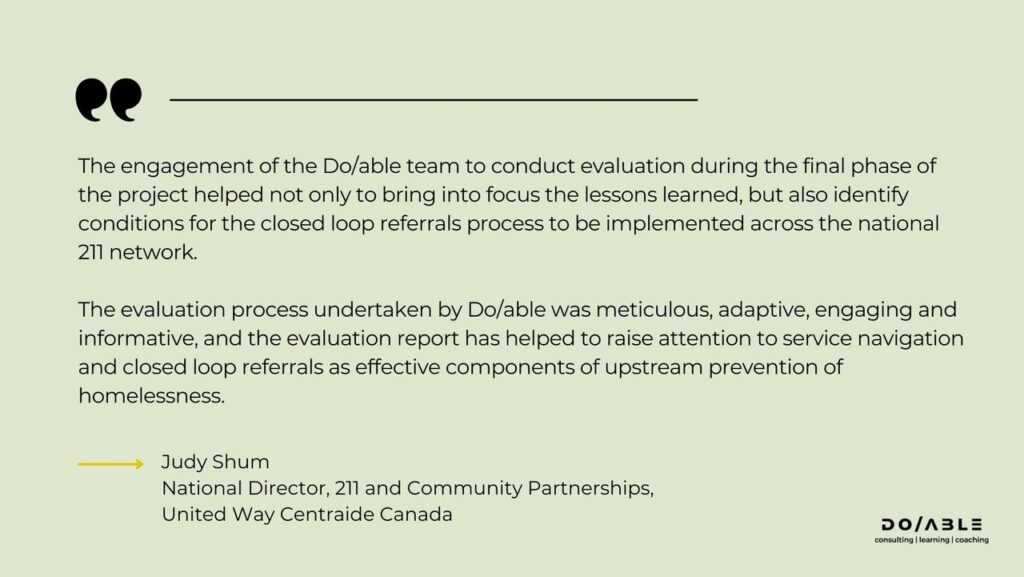
Wondering if a service at your organization is responding adequately to client needs?
You may find a service review beneficial, particularly if needs in your community are more complex, the environment is unstable, and you want to ensure that a longstanding service is still fit for purpose.
Working with your team – whether that’s a network that spans multiple organizations and stakeholders, or a small internal group of staff and volunteers – Do/able can help you gather and analyze the required data to determine if your programs are on the right track. Not only will this give you and your teams some preliminary evidence to determine next steps, but it can also help you build a credible case for supporting an ongoing service or a much-needed adaptation. Get in touch with Do/able for a 20-minute chat to explore the possibilities!
